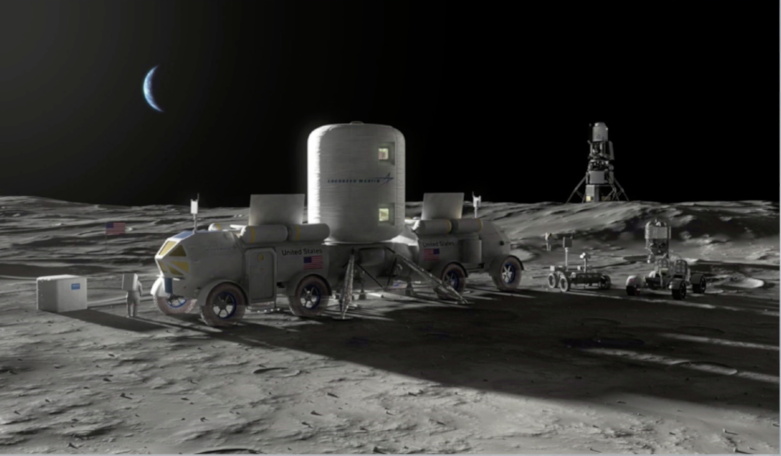Hoping to build upon the Outer Space Treaty, which subscribes to the peaceful exploration and use of space and celestial bodies, NASA has signed up seven nations to support its Artemis Accords; a set of guidelines for the responsible exploration of the Moon that those participating in the Artemis programme are expected to adhere to.
“Artemis will be the broadest and most diverse international human space exploration program in history, and the Artemis Accords are the vehicle that will establish this singular global coalition,” said NASA Administrator Jim Bridenstine.
“With today’s signing, we are uniting with our partners to explore the Moon and are establishing vital principles that will create a safe, peaceful, and prosperous future in space for all of humanity to enjoy.”
The announcement coincides with this year’s online IAC conference, which has been attended virtually by the heads of all of the major space agencies due to the ongoing pandemic.
The countries that have signed up to the Accords, along with the US, include; Australia, Canada, Italy, Japan, Luxembourg, United Arab Emirates and the United Kingdom. It is envisaged that additional countries will join the Artemis Accords in due time.
NASA announced its intention to establish the Accords earlier this year and expects the guidelines to be implemented through bilateral agreements with its partners.
Those future agreements will describe legal provisions and lay out each country's specific contribution to the Artemis programme.
In effect, the newly signed Accords will "establish norms of behavior and rules for space operations," Bridenstine said.
The principles of the Artemis Accords cover a number of aspects, including registration of space objects, release of scientific data, preserving heritage, interoperability and the commitment to plan for the safe disposal of debris.
“Fundamentally, the Artemis Accords will help to avoid conflict in space and on Earth by strengthening mutual understanding and reducing misperceptions. Transparency, public registration, deconflicting operations – these are the principles that will preserve peace,” said Mike Gold, NASA acting associate administrator for international and interagency relations.
“The Artemis journey is to the Moon, but the destination of the Accords is a peaceful and prosperous future.”
Critics though argue that such far-reaching principles should have been developed in a multilateral forum through the United Nations or other international organisations, not bilaterally via government-to-government agreements.
But, Bridenstine told reporters, that would have taken too long. “We’re moving very fast.”
While NASA is leading the Artemis program, which aims to return humans to the Moon by 2024, it has emphasised the need for international partnerships in establishing a sustainable presence on the Moon; something the US and other global space agencies view as in important step towards an eventual crewed mission to Mars.
However, not everyone seems onboard with NASA’s plans.
Dmitry Rogozin, the head of the Russian space agency Roscosmos, said this week during the IAC that Moscow was unlikely to participate in the US's Moon-orbiting Gateway station "on a large scale", because it "is too US-centric, so to speak.”
Instead, Rogozin, advocated for an agreement to extend the lifetime of the International Space Station to 2028 or 2030, adding that the ISS was a “truly international project.”
Russia’s lack of involvement in the Gateway could see the end of the close cooperation seen by the two big space-faring nations on the ISS for the last two decades.
But, Rogozin, whose speech by video link was translated live, left open the chance of some future collaborative projects. "A flight to the Moon is associated with a high risk... this is why we need to have at least two transportation systems," he said. Nonetheless, Russia supported "standardisation of interfaces" that could allow Russian craft to dock at the station, Rogozin added.











